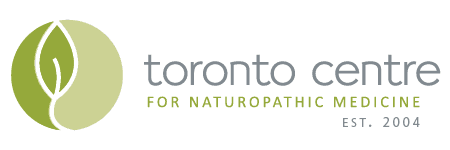Lifestyle Medicine
The cornerstone of good health
Lifestyle medicine refers to the recognition that modifiable lifestyle factors (e.g., unhealthy diet, poor ability to cope with stress) are major contributors to the development of chronic illness, and that creation and maintenance of a healthy lifestyle plan (as opposed to pharmaceuticals) can be used successfully as primary treatments for these health conditions.
In fact, healthful behaviours can affect our health on the most profound, cellular and genetic levels:
- Cancer tumour-suppressing genes can be “turned on” by consumption of chemicals present in green tea
- Genes that promote fat storage can “turned off” by exercsie
- Genes that promote inflammation can be “turned off” by meditating
- Telomere (the portion of the cell responsible for protection of a cell’s genetic material) length is significantly increased by nutritious diet, exercise and stress management (telomore shortening is associated with development of cancer, heart disease, diabetes, obesity and osteoporosis)
Benefits of Lifestyle Medicine
According to a 2009 research study, modifiable lifestyle factors (including tobacco use, obesity, physical inactivity, low intake of vegetables and fruits, low dietary intake of “healthy fats”) are responsible for almost 85% of all deaths in the United States.
Increased success in treatment of all health conditions is increased when a healthy lifestyle is observed.
Health conditions preventable and/or responsive to lifestyle medicine approaches include:
- 25% of heart disease deaths
- 90% of diabetes mellitus
- 90-95% of cancers
- Obesity
- Osteoporosis
- Anxiety
- Sleep apnea
- Liver disease
- Osteoarthritis
- Infertility
- Gallbladder disease
- Gout
Frequently overlooked benefits of a lifestyle medicine approach include:
- Absence of side effects
- Low cost
- Increased energy
- Improved mood
- Improved self-esteem
- Improved sleep quality
- Decreased weight
- Improved fitness
- Improved digestion
- Improved sleep quality
- Generally improved wellbeing and quality of life
What to Expect
Lifestyle medicine is a process, in which lifestyle factors contributing to illness are identified, health goals are created, obstacles to achieving health goals are identified, tools for smooth integration of lifestyle change into your existing routine are taught and motivational tools are developed.
Over time, progress towards goals is monitored (in one study, patients who were monitored monthly achieved their goal 15 times more quickly than those monitored twice yearly), until goals are achieved and importantly, maintained.
The goal of any therapeutic lifestyle change program is to create a lifestyle that results in reversal of illness symptoms, and prevention of future disease.
Lifestyle Medicine at Toronto Centre for Naturopathic Medicine
Naturopathic doctors are the most rigorously trained primary healthcare providers in the provision of lifestyle medicine. With rare exceptions, a lifestyle medicine program is the cornerstone of every patient’s treatment plan.
Lifestyle medicine programs (not including cost of nutritional supplements) provided at Toronto Centre for Naturopathic Medicine are covered by most extended healthcare plans.
For an introduction to getting started on a healthier lifestyle, learn about our Three-Month Lifestyle Make-Over program here.
Or contact us to arrange an appointment.
References
Hardy TM, Tollefsbol TO. Epigenetic diet: impact on the epigenome and cancer. Epigenomics. 2011;3(4):503-518. doi:10.2217/epi.11.71.
Rönn T, Volkov P, Davegårdh C, et al. A six months exercise intervention influences the genome-wide DNA methylation pattern in human adipose tissue. Greally JM, ed. PLoS Genetics. 2013;9(6):e1003572. doi:10.1371/journal.pgen.1003572.
Study reveals gene expression changes with meditation. ScienceDaily [Internet]. 2013 Dec 8 [cited 2015 Oct 22]. Available at: http://www.sciencedaily.com/releases/2013/12/131208090343.htm.
Ornish D, Lin J, Chan JM, Epel E, Kemp C, Weidner G, et al. Effect of comprehensive lifestyle changes on telomerase activity and telomere length in men with biopsy-proven low-risk prostate cancer: 5-year follow-up of a descriptive pilot study. Lancet Oncol. 2013 Oct;14(11):1112-20. doi: 10.1016/S1470-2045(13)70366-8. Epub 2013 Sep 17.
Danaei G, Ding EL, Mozaffarian D, Taylor B, Rehm J, Murray CJL, Ezzati M. The preventable causes of death in the United States: comparative risk assessment of dietary, lifestyle, and metabolic risk factors. PLOS Medicine [Internet]. 2009 Apr [cited 2014 Jun 4]. Available at: http://www.plosmedicine.org/article/info%3Adoi%2F10.1371%2Fjournal.pmed.1000058#s3.
LeWine H. Harvard Health Publications [Internet]. 200,000 heart disease, stroke deaths a year are preventable; 2013 Sep 4 [cited 2014 Jun 4]. Available at: http://www.health.harvard.edu/blog/200000-heart-disease-stroke-deaths-a-year-are-preventable-201309046648.
Anand P, Kunnumakara AB, Sundaram C, Harikumar KB, Tharakan ST, Lai OS, Sung B, Aggarwal BB. Cancer is a Preventable Disease that Requires Major Lifestyle Changes. Pharm Res. 2008 Sep [cited 2014 Jun 4]; 25(9): 2097–2116. Available at: http://www.ncbi.nlm.nih.gov/pmc/articles/PMC2515569/.
Harvard School of Public Health [Internet]. Simple steps to preventing diabetes. [cited 2014 Jun 4]. Available at: http://www.hsph.harvard.edu/nutritionsource/preventing-diabetes-full-story/.
Centers for Disease Control and Prevention [Internet]. Obesity. [cited 2014 Jun 4]. Available at: http://www.cdc.gov/chronicdisease/resources/publications/aag/obesity.htm.
WebMD [Internet]. Health risks linked to obesity. [cited 2014 Jun 4]. Available at: http://www.webmd.com/cholesterol-management/obesity-health-risks.
Smith S. Medpage Today [Internet]. Frequent Doctor Visits Linked to Quicker BP Drop; 2010 May 24 [cited 2014 Jun 4]. Available at: http://www.medpagetoday.com/Cardiology/Diabetes/20266.



